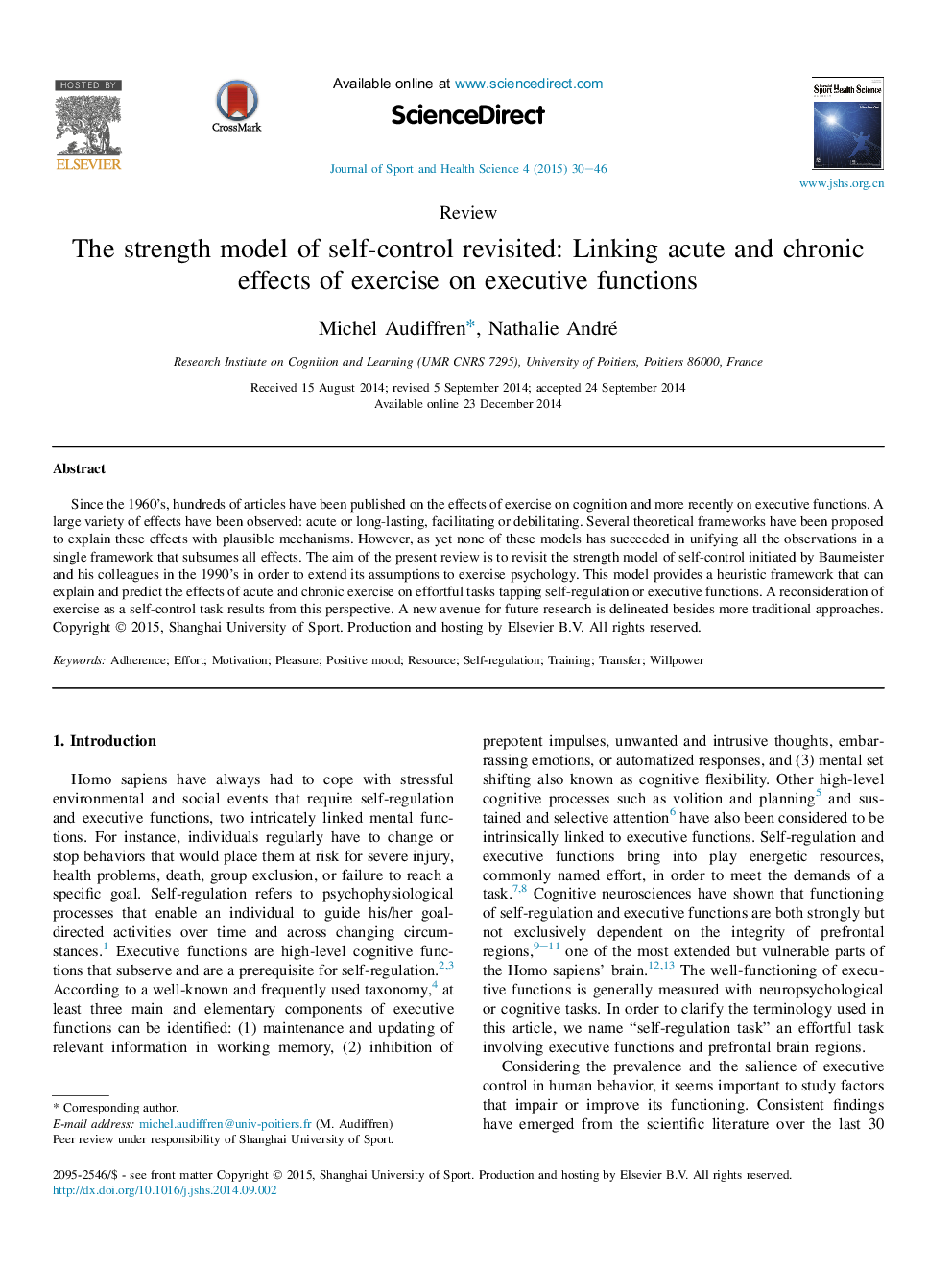| Article ID | Journal | Published Year | Pages | File Type |
|---|---|---|---|---|
| 1084078 | Journal of Sport and Health Science | 2015 | 17 Pages |
Since the 1960's, hundreds of articles have been published on the effects of exercise on cognition and more recently on executive functions. A large variety of effects have been observed: acute or long-lasting, facilitating or debilitating. Several theoretical frameworks have been proposed to explain these effects with plausible mechanisms. However, as yet none of these models has succeeded in unifying all the observations in a single framework that subsumes all effects. The aim of the present review is to revisit the strength model of self-control initiated by Baumeister and his colleagues in the 1990's in order to extend its assumptions to exercise psychology. This model provides a heuristic framework that can explain and predict the effects of acute and chronic exercise on effortful tasks tapping self-regulation or executive functions. A reconsideration of exercise as a self-control task results from this perspective. A new avenue for future research is delineated besides more traditional approaches.
